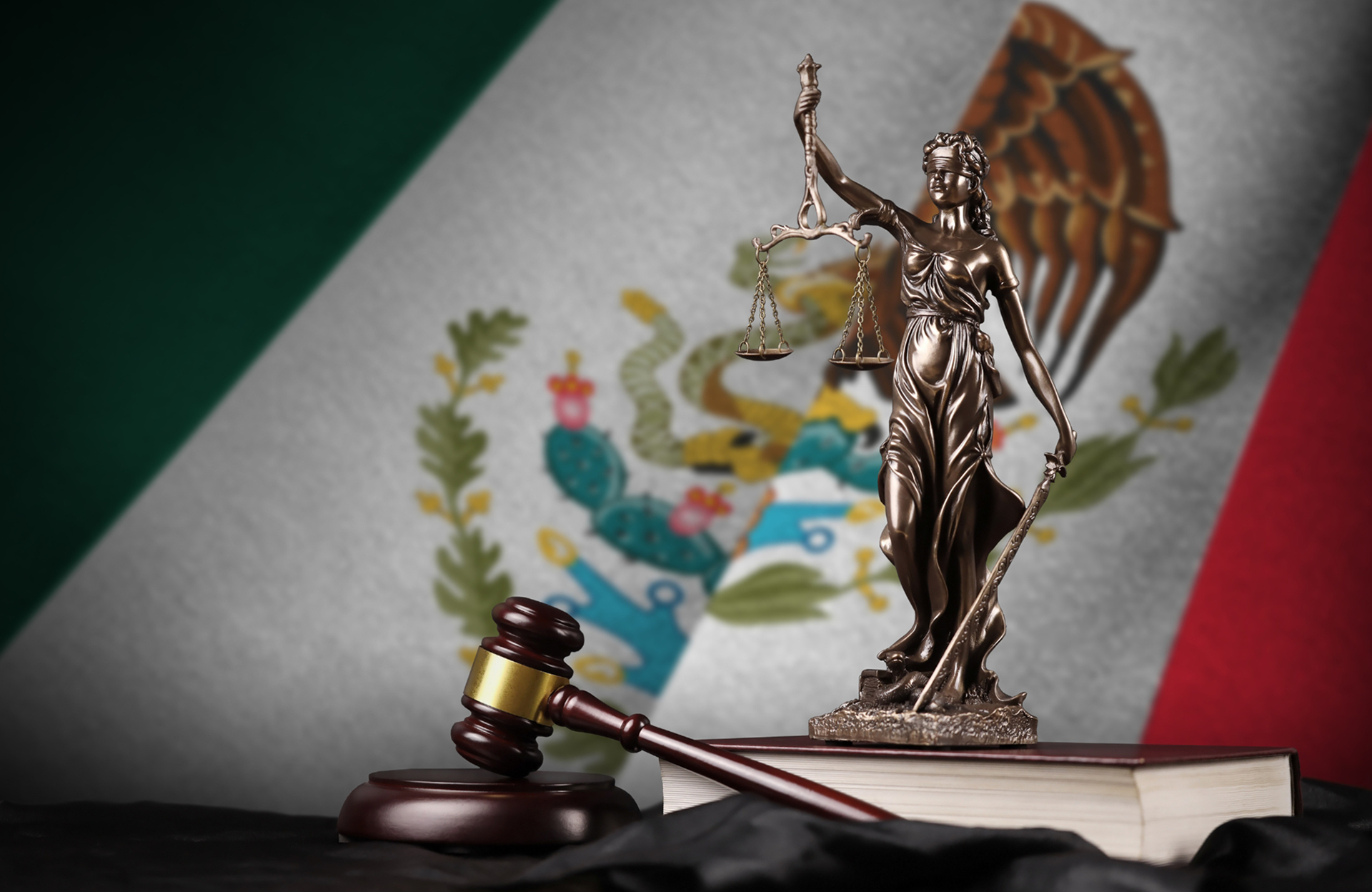Judicial Independence in the administration of justice in mexican courts
DOI:
https://doi.org/10.29059/rdycsv.v6i1.187Keywords:
judicial independence, administration of justice, mexican courtsAbstract
The administration of justice is one of the most important functions of the modern state, where a specialized body resolves those controversies raised by citizens, applying general legal rules to a particular case, to resolve the disagreement raised by the parties, issuing its opinion resolution in an objective, fair, equitable, impartial and independent manner. For the Mexican State to guarantee the issuance of fair and equitable sentences, it is necessary to guarantee compliance with a series of budgets in the development of jurisdictional activity, among which the need to achieve specialization of judges and magistrates stands out. and provide them with the opportunity for permanent training appropriate to the work they perform. Likewise, it is necessary to have independent judges, free of external and internal pressures, so that they issue their decisions with no more attachment than compliance with the provisions of the laws based on the facts that constitute the basis of the litigation and the evidence produced in the trial stage so that the court is objectively legitimized to issue fair, democratic resolutions consistent with the demands raised by the parties.
References
Caballero Juárez, J. A. (2021). La Reforma Judicial de 2021 ¿Hacia dónde va la justicia?, Instituto de Investigaciones Jurídicas UNAM, México. pp. 4 y 97.
Carbonell, M. (2006). El Poder Judicial y Derechos Fundamentales, Cuadernos de la Judicatura, México, P. 20.
Constitución Política del Estado de Tamaulipas. Artículo 107. https://www.congresotamaulipas.gob.mx/Parlamentario/Archivos/Constituciones/Constitucion%20Politica%20del%20Estado%20ext%2025%2018_nov_22.pdf
Comisión Nacional de Tribunales Superiores de Justicia de los Estados Unidos Mexicanos. Federación y CONATRIB miran desafíos como retos a superar. (2022) https://conatrib.org.mx/federacion_conatrib_desafios/
Constitución Política de los Estados Unidos Mexicanos [Const]. Art. 17. 5 de febrero de 1917 (México). https://www.diputados.gob.mx/LeyesBiblio/pdf/CPEUM.pdf
----------Art. 18. 5 de febrero de 1917 (México). https://www.diputados.gob.mx/LeyesBiblio/pdf/CPEUM.pdf
----------Art. 100. 5 de febrero de 1917 (México). https://www.diputados.gob.mx/LeyesBiblio/pdf/CPEUM.pdf
----------Art. 116. 5 de febrero de 1917 (México). https://www.diputados.gob.mx/LeyesBiblio/pdf/CPEUM.pdf
Convención Americana sobre Derechos Humanos. Art. 8. 7 de mayo de 1981. https://www.cndh.org.mx/sites/default/files/doc/Programas/TrataPersonas/MarcoNormativoTrata/InsInternacionales/Regionales/Convencion_ADH.pdf
Decálogo y Código de Ética del Poder Judicial del Estado de Tamaulipas. (2018). Departamento de Difusión del Poder Judicial del Estado. http://www.pjetam.gob.mx/Publicaciones/publicaciones/DECALOGO_Y_CODIGO_DE_ETICA_2019.pdf
Declaratoria para el inicio de la observancia de las nuevas reglas de la carrera judicial y acuerdo general del pleno del consejo de la judicatura federal que reglamenta la carrera judicial. (2021) Artículo 4. https://www.cjf.gob.mx/resources/practicas/2023/declaratoria-2023.pdf
Decreto LVII-361. Ley Orgánica del Poder Judicial del Estado. 14 de diciembre del 2000. POE N° 53. https://po.tamaulipas.gob.mx/wp-content/uploads/2022/05/Ley_Org_Poder_Judicial.pdf
Diario Oficial de la Federación. (2008). Decreto por el que se reforman y adicionan diversas disposiciones de la Constitución Política de los Estados Unidos Mexicanos.
https://dof.gob.mx/nota_detalle.php?codigo=5046978&fecha=18/06/2008#gsc.tab=0
Diario Oficial de la Federación. (2023). Decreto por el que se expide el Código Nacional de Procedimientos Civiles y Familiares. https://www.dof.gob.mx/nota_detalle.php?codigo=5691385&fecha=07/06/2023#gsc.tab=0
Ferrajoli, L. (2004). Derecho y Razón, Teoría del garantismo penal, editorial Trotta, 6ª. Edición, Madrid, pp. 584 - 586.
Gordillo, A., et al (2005). Derechos Humanos, Fundación de Derecho administrativo, Buenos Aires, p. XVI-6.
Guiza Cabrera, A. y Montoya Camarena, R. S. (2021). Independencia judicial: cuatro tesis en construcción. https://eljuegodelacorte.nexos.com.mx/independencia-judicial-cuatro-tesis-en-construccion/
Miranda Canales, M. (2011). Los sistemas de nombramiento de magistrados en el Derecho Comparado y en el Perú. p. 162. file:///C:/Users/Usuario/Downloads/Dialnet LosSistemasDeNombramientoDeMagistradosEnElDerechoC-5157833.pdf
Pacto Internacional de Derechos Civiles y Políticos. Art. 14. 16 de diciembre de 1966. https://www.ohchr.org/sites/default/files/ccpr_SP.pdf
Pantin, L. y Quezada, A. (2021). México Evalúa, ¿Estamos listos para elegir a los magistrados por voto popular? https://www.mexicoevalua.org/estamos-listos-para-elegir-a-los-magistrados-por-voto-popular/
Suprema corte de justicia de la nación (2006). La independencia del Poder Judicial de la Federación, Serie el Poder Judicial Contemporáneo Núm. 1, pp. 9 - 27, 34, 45 y 105.
Tesis del Pleno P./J. 15/2006., Semanario Judicial de la Federación y su Gaceta, Tomo XXIII, febrero de 2006, p. 1530.
Tesis del Pleno P./J. 44/2007., Semanario Judicial de la Federación y su Gaceta, Tomo XXV, mayo de 2007, p. 1641.
Tesis 2a./J. 10/2022 (11a.) Semanario Judicial de la Federación y su Gaceta, Libro 10, febrero de 2022, Tomo II, p. 1608.

Published
How to Cite
Issue
Section
License
Copyright (c) 2023 Universidad Autónoma de Tamaulipas

This work is licensed under a Creative Commons Attribution-NonCommercial-ShareAlike 4.0 International License.

